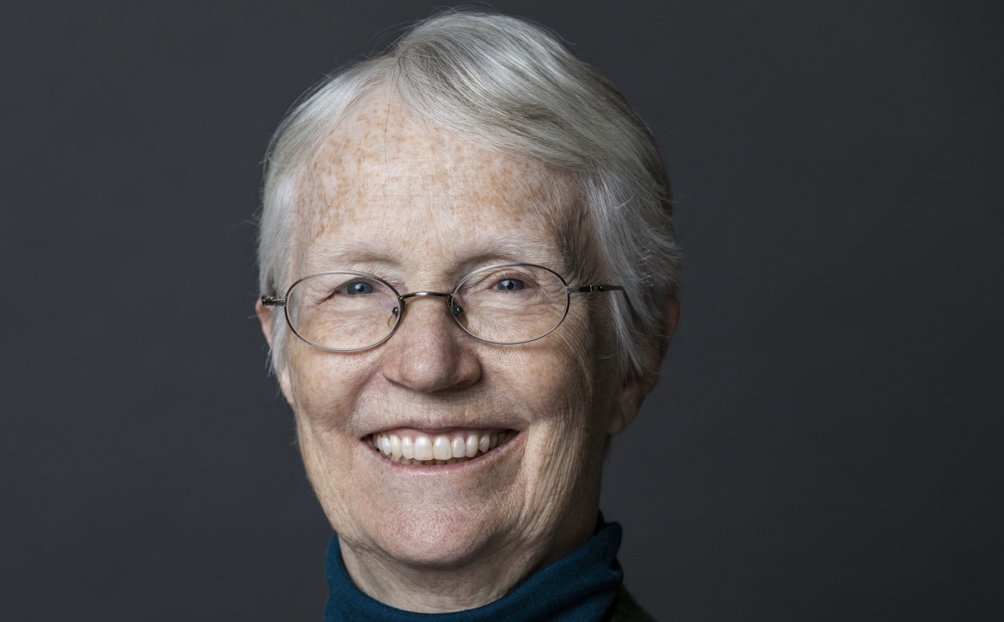Blog: The Frank Parkinson Lecture: Advancing Climate Change and Food System Solutions
5th January 2023 by OFC Press Team

The Frank Parkinson Lecture, sponsored by the Frank Parkinson Agricultural Trust, looked at a global multi disciplinary approach using data, sensing and technology to inform policy makers.
Dr Cynthia Rosenzweig, Senior Research Scientist and Head of the Climate Impacts Group at the NASA Goddard Institute for Space Studies, in this short blog we reflect on they key messages from her speech.
The World Food Prize Laureate 2022 winner recognised for her work assessing climate change's threat to agriculture and food security opened by saying that ‘the Climate change challenge is the most significant environmental challenge of our time.’
Yield projections
A global network of over 1000 agriculture, climate and food researchers known as the The Agricultural Model Inter-comparison and Improvement Project's (AgMIP) convenes scientist and stakeholder to conduct multi-modal assessments. The network projects biophysical and economic impacts of practices, technologies, and incentives for current and future climate conditions. The outcome is a developing science base to inform decision making
Their wheat and maize yield projections, until 2099, vary by region across the world, with climate change affecting different yields and crops.
Their work suggests that wheat will do OK, whereas maize yield is globally declining due to climate change, and will continue to do so at an increasing rate. Different crops respond to temperatures and CO2 changes differently.
Examples of the impact of climate change
The UN said in 21 that Madagascar could be experiencing the worlds first ‘climate induced famine’. In 2019, Chile had an 80-90 rainfall deficit and declared an agricultural emergency. Climate change likely increased extreme monsoon rainfall and flooding in Pakistan in 2022. In the USA, in 2022, abnormally hot water helped strengthen Hurricane Ian, with as many as 375,000 acres of citrus affected.
The use of remote sensing
One example is the AgMIP’s remote sensing of the enhanced vegetation index for Ghana (2000-2022) which tracks more than 20 years of growing seasons and looks at the data across seasons. This is not a clean simple story, with each year and region being different. The index roughly identifies what can be expected year on year and with AgMIP helping policy makers pinpoint where, and when, they can help farmers.
An artificial approach
New artificial intelligence models, trained on field observations, are being developed to draw added value from the combination of observed weather, remote sensing of field conditions and crop model results. AI is identifying areas for crop modelling improvements. For instance in the States, AI has indicated the important role of frost and floods.
Once the data has been gathers the AgMIP wants to ‘roll up its sleeves’ and get stuck in to identify the learning from this and then scale out the impacts this can have.
Being mindful that its easy to work and address issues surrounding climate change in silo’s, one of AgMIP’s aims is to break down these silos. But the headline is, ‘we are all in one system, so breaking it down is useful, but we need an holistic approach to address the issue as a whole.’ Cynthia commented.
Connecting systems to move forwards
Cynthia highlighted the importance of moving together to provide stable food systems which consider soils, water, nature, people and to not forget that all aspects are linked and have an impact on and with each other.
Consider that all the sub-systems can work together to mitigate against climate change, i.e the ecosystems, food system, climate system and the socio-economic system.
Cynthias “take homes”:
1.Take a food-systems approach that links climate system, ecosystems, nutrition and sustainable development pathways to achieve healthy food and a healthy plant.
2. keep a laser focus on climate change solutions for food system stakeholders, with integrated focus on mitigation, adaptation and sustainability.
3. Conduct radically cooperative, multi-scale assessments of solutions, including resilience to climate disasters.
Cynthias own ask to the delegates was to think big and consider larger scale climate change solutions.
This session was recorded and will be available on the OFC website post-conference.
